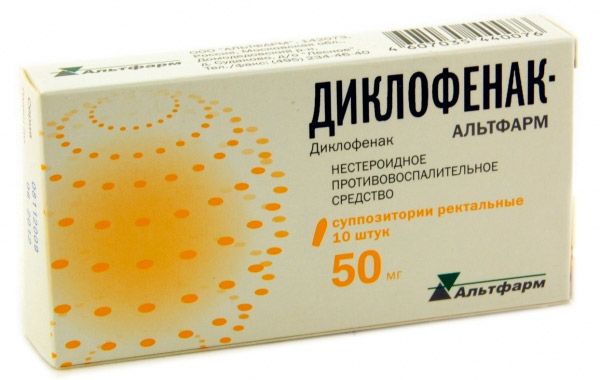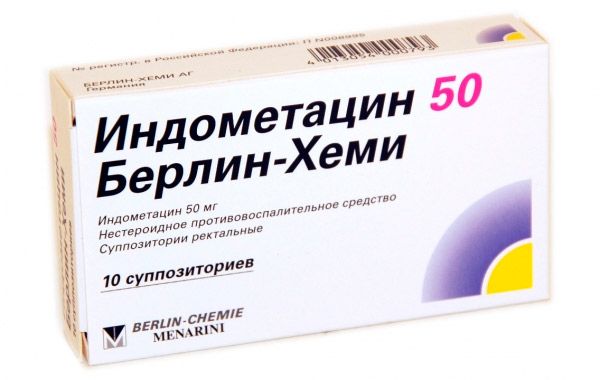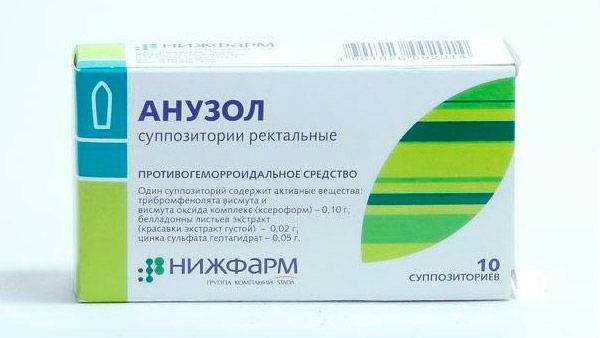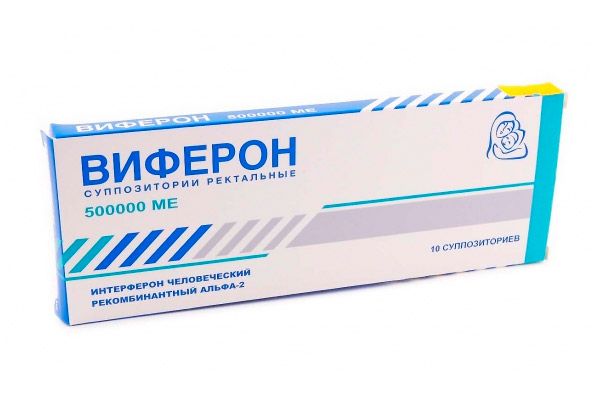Medical expert of the article
New publications
Preparations
Candles for endometriosis
Last reviewed: 03.07.2025

All iLive content is medically reviewed or fact checked to ensure as much factual accuracy as possible.
We have strict sourcing guidelines and only link to reputable media sites, academic research institutions and, whenever possible, medically peer reviewed studies. Note that the numbers in parentheses ([1], [2], etc.) are clickable links to these studies.
If you feel that any of our content is inaccurate, out-of-date, or otherwise questionable, please select it and press Ctrl + Enter.
In case of endometriosis, suppositories are used quite rarely, since this disease is always accompanied by quite heavy and long irregular intermenstrual and menstrual bleeding. They simply wash out the suppositories from the vagina and they do not have time to give a positive result. But in some cases, doctors prescribe special rectal suppositories, which have an analgesic effect.
Indications for use
As a rule, rectal suppositories for endometriosis are prescribed when it is necessary to achieve a good pain relief effect without using large doses of analgesics. Usually, suppositories containing NSAIDs (non-steroidal anti-inflammatory drugs) are used for such purposes. For example, indomethacin and diclofenac are considered quite effective. They help reduce severe pain.
These suppositories are most effective if the patient has been diagnosed with retrocervical endometriosis. This disease affects not only the back of the cervix, but also moves to the rectum, affecting the nerve plexuses in this area. Therefore, a very strong pain syndrome occurs.
If the pain is of a spastic nature, which most often occurs with intestinal endometriosis, suppositories containing papaverine or belladonna will help.
Very often, patients with endometriosis develop adhesions in various organs. This process is most dangerous if the disease affects the uterus or ovaries, as this can lead to infertility. In this case, some suppositories will help prevent the formation of adhesions or improve their resorption. For these purposes, doctors prescribe suppositories that contain longidaza (they are administered either rectally or vaginally).
Pharmacodynamics and pharmacokinetics
Viferon suppositories are almost always included in the complex therapy of endometriosis, so let's consider the pharmacodynamics of this drug.
The main active component of the drug has antiviral, immunomodulatory, antiproliferative effects. Usually, drugs have a complex composition, which helps to achieve some additional effects. For example, if antioxidants are present in suppositories, the antiviral activity of the main active substance is enhanced (especially on B- and T-lymphocytes).
Indomethacin is a very popular drug for the treatment of endometriosis, so we will describe its pharmacokinetics.
The drug is absorbed very quickly. If administered rectally, its bioavailability is 80-90%. It binds to proteins in plasma by 90%. The drug is metabolized mainly in the liver. Only 30% of the drug is excreted unchanged. 70% of this amount falls on the kidneys and 30% on the gastrointestinal tract. It can penetrate into breast milk, so it is contraindicated during lactation.
Names of suppositories for endometriosis
Diclofenac. Suppositories with anti-inflammatory, antipyretic and analgesic effects. The drug is a non-steroidal anti-inflammatory drug, a derivative of phenylacetic acid.

Suppositories are inserted into the anus once a day. During pregnancy, it is used extremely rarely, only under the supervision of a specialist. The most common side effects from using the product are: vomiting, constipation or diarrhea, ulcerative colitis, headaches and migraine attacks, insomnia, fatigue, depression, mental disorders, thrombocytopenia and anemic syndrome (extremely rare), kidney dysfunction, hair loss, itching, skin rash, allergic reactions.
These suppositories are contraindicated in case of ulcers and erosions of the gastrointestinal tract, hematopoiesis disorders (if their etiology is unclear), intolerance to substances that are part of the product.
Indomethacin. Contains a substance derived from indoleacetic acid. It has anti-inflammatory, antipyretic (slight) and analgesic effects.
The main advantage of using these drugs is the fact that they bypass the liver and act immediately at the injection site.
To treat endometriosis, these suppositories must be inserted vaginally three times a day. The therapy lasts a week. Please note that although this remedy does not disrupt the vaginal microflora, it sometimes causes unexplained bleeding.
The dosage is prescribed individually, depending on the severity of the disease and symptoms. Please note that the treatment should be continued for another four weeks after positive results have been achieved (the dosage is sometimes left the same or changed to a smaller value).

The drug is contraindicated in a number of cases: in the first trimester of pregnancy, ulcers and erosions in the gastrointestinal tract, liver and kidney disorders, hematopoiesis disorders, early age (up to fourteen years), pancreatitis, proctitis. Side effects from using the drug are: vomiting, anorexia, nausea, headaches, depression, severe fatigue, emotional disorders, vertigo, allergies, itching, rash, vaginal bleeding, abscess development.
Remember that Indomethacin can only be prescribed by a doctor, and he or she must monitor the patient’s condition during treatment.
Anuzol. The active ingredients of the drug are belladonna extract (in thick form), zinc sulfate, bismuth trimbomphenate. It has antispasmodic, anti-inflammatory, analgesic, astringent, antiseptic, drying effects.
Insert one suppository into the anus once or twice a day. No more than seven suppositories can be inserted per day.

The product is completely contraindicated in: closed-angle glaucoma, intestinal atony, tachyarrhythmia, myasthenia, during pregnancy and breastfeeding, heart failure. Its use can lead to the following side effects: burning in the anus, allergies, constipation, a feeling of dry mouth, diarrhea of varying intensity, headaches and migraines, visual impairment, increased sleepiness.
Viferon. Immunomodulatory agent, which is characterized by antiviral effect. The active substance is interferon alpha-2b recombinant human.
The drug can be prescribed for the treatment of certain diseases in infancy. In the treatment of endometriosis, it is an additional drug in complex therapy, which increases the effectiveness of treatment and reduces the possibility of relapse. The dosage is prescribed by the doctor, based on the complexity of the disease. It can be used starting from the fourteenth week of pregnancy.

Side effects include only allergic reactions, which are extremely rare. The drug is contraindicated only in case of intolerance to its components.
Candles with propolis
Propolis suppositories have received many positive reviews from those who have treated endometriosis. This substance is used by bees to seal cracks that form in the hive. It is an excellent lubricating and building material in nature. After some research, scientists noticed that propolis (or bee glue) also has excellent healing properties. It:
- Relieves inflammation.
- Has antibacterial effect.
- Heals wounds.
- Regenerates tissues.
- It has a restorative effect.
- Reduces fever.
- Stimulates immunity.
- Fights infections.
In the treatment of endometriosis, propolis suppositories are used as one of the parts of complex therapy. They help to cope with this disease faster, due to the excellent anti-inflammatory effect.

Suppositories have a beneficial effect on the rectum and internal genital organs that suffer from endometriosis. And the antibacterial effect helps to get rid of those pathogenic microorganisms that are in the vagina with endometriosis. Due to the good analgesic effect, patients do not feel any pain during the treatment.
Method of using suppositories for endometriosis and adhesions
The dosage is prescribed depending on the severity and course of the disease. It also affects the method of application and the choice of the drug. For example, if a doctor prescribes Viferon suppositories in complex therapy, it is usually taken in two separate courses that last five days (with a break of ten to fourteen days between them). Suppositories are inserted into the anus twice a day (one suppository). At least 12 hours should pass between injections.
Longidaza-based suppositories are usually used to dissolve adhesions. They are prescribed as follows: one suppository every other day. Ten suppositories are needed for the entire course of treatment. Sometimes the course of therapy is repeated after some time.
Using Endometriosis Suppositories During Pregnancy
During pregnancy, most suppositories used to treat endometriosis are contraindicated for use. But in some cases, if the mother's health is more important, the doctor may prescribe drugs at his discretion.
Contraindications for use
Like other suppositories, suppositories for endometriosis have their own contraindications. Among the main ones are:
- Pregnancy (usually the first trimester), breastfeeding.
- Myasthenia gravis.
- Hematopoietic disorders of unknown etiology.
- Impaired kidney or liver function.
- Atony.
- Heart failure.
- Tachycardia.
- Glaucoma (especially closed-angle).
- Intolerance to components.
Side effects
Among the most common side effects from suppositories used to treat endometriosis are:
- Allergies (itching, rash, burning, hives).
- Dizziness accompanied by headaches.
- Cramps.
- Mental disorders and depression.
- Constipation or diarrhea.
- Insomnia.
- Urinary retention.
- Fatigue or drowsiness.
Overdose
Overdose often causes nausea, headaches, convulsions, severe vomiting, emotional agitation, and hyperemia. If you experience any of these symptoms, stop taking the drug and consult a doctor.
Interactions with other drugs
Some suppositories for endometriosis, especially non-steroidal anti-inflammatory drugs, cannot be used simultaneously with other NSAIDs, as this can cause an overdose. Also, such drugs are not recommended to be taken with diuretics, as they reduce their effectiveness. When used with drugs that contain paracetamol, it can cause nephrotoxicity. Corticotropins, glucocorticoids, colchicine and ethanol together with suppositories for endometriosis can cause bleeding in the gastrointestinal tract.
Storage conditions and shelf life
Suppositories for endometriosis should be stored in a dry place, protected from direct sunlight. The air temperature should not be lower than +25 degrees. It is important that children do not have access to the storage area of the drug.
As a rule, such products can be stored for up to five years. It is very important to check the expiration date immediately after purchase, since the drug cannot be used after its expiration.
Remember that endometriosis is a serious disease that can only be treated after a thorough examination by a specialist.
Attention!
To simplify the perception of information, this instruction for use of the drug "Candles for endometriosis" translated and presented in a special form on the basis of the official instructions for medical use of the drug. Before use read the annotation that came directly to medicines.
Description provided for informational purposes and is not a guide to self-healing. The need for this drug, the purpose of the treatment regimen, methods and dose of the drug is determined solely by the attending physician. Self-medication is dangerous for your health.


 [
[